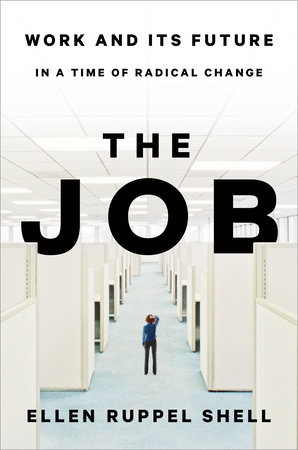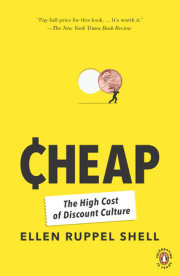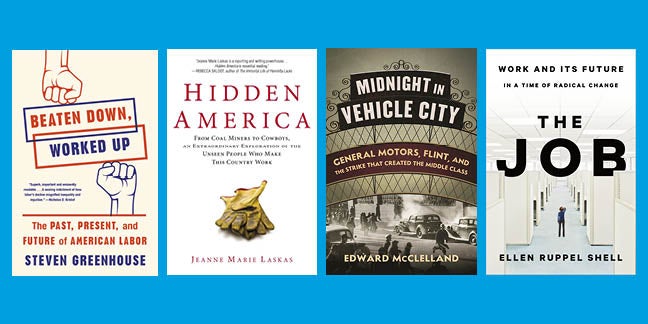1
Suffering Less
How many years of fatigue and punishment it takes to learn the simple truth that work, that disagreeable thing, is the only way of not suffering in life, or at all events, of suffering less.
—Charles Baudelaire
If the American dream came packaged in human form, Abe Gorelick would be a perfect match. Crisp, youthful, and tirelessly upbeat, his hair has just the right touch of gray, his smile just the right blend of humility and charm. He lives in a fine house on a cul-de-sac in a million-dollar neighborhood known for its good schools. He drives his three kids to soccer practice in a forest-green Jaguar the likes of which his own father—a retired high school Spanish teacher—could barely imagine. He sits on two philanthropic boards and holds a leadership role at his synagogue. He plays league softball and basketball and can’t help feeling proud of his three-point shot.
One glance at Gorelick’s résumé makes clear that this seeming prosperity was well earned: titles like “senior vice president,” “general manager,” and “principal consultant” all funnel into an Ivy League degree capped with an MBA from the University of Chicago. A veteran strategist, Gorelick had partnered with major financial institutions, airlines, pharmaceutical companies, global retailers, and start-ups large and small. Digitally savvy and forward thinking, he was by all appearances a winner—a member of the top 4 or 5 percent flying high in the knowledge economy.
But that was then, just short of his fifty-seventh birthday. Just shy of his fifty-eighth, Gorelick was still proud of his three-point shot. But the rest of his life had come unhinged from his résumé. When we first met in person, he was driving a cab, manning a cash register at Whole Foods, and peddling neckties at Lord and Taylor. The take-home pay for these part-time gigs paled compared to his previous earnings, most recently as principal for global strategy and innovation at an international marketing firm. Gorelick was unceremoniously “downsized” from that job for reasons that elude him, but he tried not to dwell on that. He was clinging to what he called the “bright side.” He enjoyed bantering with customers at the supermarket. He was pleased when an elderly woman brought him a treat after he helped her get in and out of his cab—it felt great to make a difference in people’s lives and to be appreciated. Still, he wanted his career back. He knew the obstacles—his age, for one, worked against him. He wasn’t naive. But he didn’t believe that age was the essential problem. He believed the problem was him. And he had plans to fix that. He had enlisted a job counselor, had joined a support group, and, with his wife, was spending long hours rehashing the past in an attempt to make right whatever was holding him back, as well as preserve their marriage in the face of these new headwinds and challenges. The marriage, he said, teetered on the edge of his fragile ego, and his ego depended on his professional success.
“For a long time I wanted to be who I am,” he confided over chamomile tea in a café outside Boston. “And I think that hurt me. Most companies, you’ve got to fit into their culture. And I guess I didn’t always do that. I was always, you know, me. And I guess that wasn’t what they were looking for.”
Gorelick’s career successes surpass those of most Americans. With all his savvy and privilege, we might believe, he should have known and planned better. He freely acknowledges that, and agrees that there is no shame in driving a cab or bagging groceries.
Still, the outline of Gorelick’s story may strike a familiar chord. We know how he feels because we’ve felt the same way, or know someone who has. Our job title is a sort of shorthand that in just one or two words captures who we are and where we stand in the minds of others, and in our own. If you doubt it, try this thought experiment. Close your eyes and picture Abe the fifty-eight-year-old supermarket cashier/cabdriver/retail clerk. Now picture Abe the fifty-eight-year-old senior vice president of marketing strategy. In your mind’s eye do these men—really two versions of one man—look anything alike?
I’ve introduced Abe Gorelick so early in the book not to evoke your sympathy but to sound the alarm. By almost any objective measure, he has done everything right. With his advanced degrees, sterling résumé, and upbeat outlook, he is not the sort of guy we associate with bad job karma. He is an eager and well-connected networker, a flexible thinker, a generous volunteer. There are no obvious gaps in his skill set, and no grass is growing beneath his feet. But while his case might not be typical, his response to his situation is: like so many of us, he blames himself—not the system—for every setback. And that self-blame takes a heavy toll on far too many of us. Clinging to the canard that we—as individuals—have near-complete control over our vocational trajectories has brought misery, as public policies built on this myth risk being not only counterproductive but in some cases dangerously divisive. And as Gorelick’s case makes clear, that divisiveness can hit terribly close to home.
Sociologist Ofer Sharone knows Abe Gorelick well, and he knows quite a few other people like him. Not only has he made a study of them, but not all that long ago he was one of them, at least in some ways. Before entering academia, Sharone practiced international law, circling the globe to negotiate deals in several languages. He felt powerful and important. Like Gorelick, by conventional standards he had done everything right. But on one overnight flight from Israel to Japan, he started to question himself. The money and status were intoxicating, but the power—well, that wasn’t quite real. Many of his everyday tasks seemed silly and futile, yet like a nagging toothache these matters demanded his full and near-constant attention. “I found it horrifying that I was expected to give myself to a job over which I had almost no control,” he told me. Even more sobering was the realization that he was sacrificing so much of his life for a job. And here is where Sharone and the people he studies part ways. Rather than contort himself to maintain his career identity, he began to plot his escape.
Sharone quit the law and entered graduate school to study sociology and grapple with the question of why he—and so many people he knew—felt trapped by jobs that afforded them so little control. To truly understand the problem, he needed a base of comparison: Did workers in other nations feel the same way? Born in Israel, he figured that was a natural place to have a look. So he gathered his frequent flier points and went off to investigate.
Israel and the United States have many things in common: both are market economies with low labor union participation rates and a relatively flexible private sector labor market. They share important economic structures, including a thriving high-tech sector. And they are business allies. “Since the 1990s, Israelis considered the American economic model synonymous with progress and efficiency,” Sharone said. Yet despite these commonalities, Sharone observed that Israelis and American workers related to their jobs quite differently.
Sharone noted that Americans felt less control over their working lives than did their Israeli peers. Even in high-pressure sectors like corporate law or finance, Israelis were better able to negotiate the terms of their employment and to find a balance between their professional and personal lives. A critical factor underlying this difference, Sharone told me, was the very process of securing employment.
In Israel, rejected job applicants tend to blame the system. In the United States, rejected job applicants are far more likely to blame themselves.
Sharone attributes this contrast in attitudes to what he describes as two very different hiring strategies. In Israel, job candidates are screened in a depersonalized and fairly objective process focused on demonstrated skills and credentials. In what Sharone calls the “specs game,” applicants are grilled and pretested on their abilities and are sometimes eliminated because of technicalities or attributes—like their age—that don’t necessarily relate to the job. This might make them angry, but it tends not to diminish their self-esteem. They consider it not their fault but the fault of an imperfect and sometimes unjust system that is beyond their control.
In the United States, by contrast, job seekers engage in what Sharone calls the “chemistry game.” While demonstrated skills and credentials are generally essential to getting an interview, they are typically not sufficient to clinch the deal. For that, job seekers need to conjure up what Sharone calls “interpersonal chemistry”—that is, to show a deep commitment not only to the job but to the institution behind it. It’s not enough to merely want and need the job or be qualified for the job. As one online job site advises: “Standing out from the equally-qualified pack and getting that job offer most often boils down to ‘fit.’ ”
Sharone attributes this focus on “fit” in part to what he calls the “career self-help industry,” the legion of job coaches, counselors, and consultants who insist that it’s not enough to impress employers with one’s work ethic, experience, and skills—one must also come across as the right sort of person. “In the US, having your identity constantly put to the test generates a lot of the objective experience of work,” he told me from his office at the University of Massachusetts, Amherst. “The self-help industry convinces us they have a secret, and they will help us become the sort of person employers are looking for. We’re warned that you can’t just pretend to have that passion for the job, you have to make yourself feel it. What this means for many American workers is that any urge to distance yourself from your job identity is undermined by what it takes just to get the job.”
This edict applies not only to the sort of high-paying white-collar jobs sought by people like Gorelick but also to the basic entry-level jobs sought by recent graduates. Where I teach, students are advised to prepare for interviews with an “elevator speech” that at once showers praise on their potential employer and reflects their ability to conform to the company’s presiding “corporate culture.” Concocting such “interpersonal chemistry” requires a substantial outlay of what Sharone calls “hard emotional labor” to sustain “a whole new persona.” This includes meticulously crafting a rhetorical style that projects a passion for career goals that match the objectives of the employer. Job seekers must portray themselves as team players also willing to take initiative while at the same time conveying an undying enthusiasm for whatever service or product the company delivers. In the course of playing this “chemistry game,” many applicants experience a decline in feelings of self-worth—blaming not the job or the employer or the system but themselves for any failure. Many workers with whom I spoke—machinists, waiters, chemists—ascribed their difficulties on the job, or, especially, in getting a job, to personal failings rather than to economic forces beyond their control. Sharone told me this was typical: in his surveys, asked whether “something is wrong with me,” 84 percent of unemployed American job seekers responded yes.
The idea that we must sell ourselves—not merely our time, effort, and skills—to get and keep a job is so commonplace in the United States that it’s become a subject for parody. In an outtake of the hit television series Girls, Hannah Horvarth, played by Lena Dunham, enters a bakery where she has previously dropped off a résumé. Equipped with a freshly minted—but apparently useless—college degree from a prestigious liberal arts college, she is clearly desperate for a job. As she approaches the manager, he winces. “I’m sorry, the position is filled,” he says, pointing to a newly hired employee spreading frosting on a cupcake in what appears to be a state of ecstasy. Nodding sagely at the cupcake, Hannah is humbled. “Wow, you must totally be a baker, because those look amazing, and it must be very hard to do.” The cupcake-froster looks up from her handiwork and smiles dreamily. “No,” she says, “I just learned this right now.” The manager cocks an eyebrow at Hannah and explains, “She just totally fits in with our vibe. Can I give you a friendly rec? If you are looking for a job, you should probably do it with a little more, like, buoyancy.” Hannah gratefully accepts his advice, and in turn the manager promises to keep her résumé on file—a promise they both know is empty.
While the cupcake scene is parody, we laugh because we also know it’s in the largest sense also real. Most of us have experienced similar humiliations or know someone who has—the message that it’s not our skills or knowledge or abilities that are keeping us from a job, but—well—who we are. Probably the most memorable case in my experience is an acquaintance of mine whom I will call Elizabeth to protect her privacy. Elizabeth, a thirty-three-year-old account executive, was eagerly recruited by a firm in Atlanta, Georgia. Though she hadn’t been actively looking for a job, Elizabeth prepared carefully for the interview and pulled together what she hoped was an impressive PowerPoint presentation. She arrived at corporate headquarters directly from her flight, overnight bag in hand. After a warm welcome and introductions all around, Elizabeth was told to put her PowerPoint aside for now and “suit up” to join the sales team in a group jog. Elizabeth suffers from asthma. Nonetheless she pulled a pair of shorts and a T-shirt from her overnight bag and plodded through four breathless miles. Returning to the office and to what she thought would be her presentation, she was detoured once again, this time to join a postjog prayer session—the staff had joined hands in a circle and were bowing their heads. She respectfully declined. After the prayer circle dispersed, she went on with her presentation, which all agreed went quite well. Flying home, she decided to take the position—yes, it was a rather unusual office, but the pay and benefits were excellent, the work suited her, and her presentation had prompted applause. Later that week, Elizabeth got a surprising e-mail: she had been judged a “less than perfect fit,” and had been passed over for the job.
Certainly, it is well within an employer’s rights to pass on a candidate who appears to be a bad fit. It’s also common for human resource experts to argue that “fit” with the company culture is the number one thing to look for in a new employee and that “poor fit” all but inevitably predicts “poor performance.” But this leads to an essential question—what do we mean by fit, and how does one achieve it? The term is sometimes vaguely defined as the likelihood that an employee will reflect and be able to adapt to the core beliefs, attitudes, and behaviors that make up a particular organization. This sounds reasonable; after all, an outspoken vegetarian may not be a great fit for a sales position at a meat-processing plant, or a claustrophobe the best fit for an underground coal-mining operation. But when employers talk about “fit” they are not necessarily talking about individual preferences and proclivities. Rather, wittingly or not, they are more often describing the very behaviors and attitudes that comport with their own.
Copyright © 2018 by Ellen Ruppel Shell. All rights reserved. No part of this excerpt may be reproduced or reprinted without permission in writing from the publisher.




